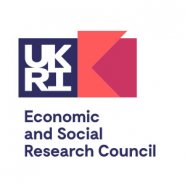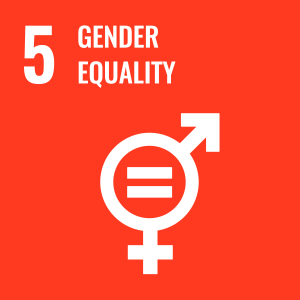
CAROLINE: Creating A Network on Female Pioneers
Start date
February 2023End date
July 2023Overview
An ESRC IAA project, funded through the Impact Exploration Fund, is being led by Dr Simona Guerra a Senior Lecturer in Comparative Politics at the University of Surrey.
Dr Guerra’s project, ‘CAROLINE’ (Creating A Network On Female Pioneers) aims to develop and consolidate a network of EU officials and experts, around the life of the European female pioneers to promote their presence and relevance in the history of European integration. The network will provide opportunities for exhibitions, talks, podcasts and support towards gender policy promotion.
Simona’s current research at the University of Surrey is exploring the lack of women in the history of European integration. Textbooks and the narrative on the early stages of the European integration process still seem to downplay the role of women, in particular during the early years (Milosevic 2018).
There is much literature about the Founding Fathers and main (male) politician of the early years of EU studies, but very little reference exists to women, who are often considered irrelevant in the politics of the past.
Dr Guerra says about the project; "There is a problematic deficit in European studies that does not seem to be justified. It is recognized and acknowledged, and, still, we continue to learn the history and politics of the EU in the same way, by repeating and transmitting the same bias. It is up to us, as researchers, to get to know the work of these women, as makers and shapers of European integration, and to write about them."
This is critical and it matters, as ‘what we choose to acknowledge about the past matters’ (Carr and Lipscomb, 2021, p. 10). If we do not write about these women, they are not there. ‘[If w]e don’t look for them. Then we don’t find them. And they deserve to be found.’ (Moland, 2023) The writer selects and identifies what is to be told, that further needs to be consistently interrogated and reinterpreted (Carr and Lipscomb, 2021).
CAROLINE addresses the structural lack of women’s representation in what is often called ‘his-story’ whilst also bringing these women to light through expert reviews of original documentation of their political activities at the European Parliament Archive.
Dr Guerra seeks to create more interest and debates around these women as pioneers of European democracy and integration, so to increase young women’s interest and general knowledge about the EU, while influencing how we, as scholars, talk and teach students about the European Union.
Related sustainable development goals

Team
Dr Simona Guerra
Senior Lecturer in Comparative Politics
Biography
Since I was awarded my PhD (January 2009), I have established myself as a scholar and an expert in the field of Euroscepticism and European Studies. My dedication to high-quality and path-breaking research is demonstrated by my success in obtaining funded research grants (about 1,510,606.06 Euros).
This is supported by the numerous invited talks at the international level, by governmental/EU institutions, as keynote speaker/speaker at roundtables, as at the ECPR (with former Polish President and Nobel laureate Lech Wałęsa), UACES, and PSA. Further, at a rather junior stage I have become the first author of the chapter on public opinion and EU integration in the most used (OUP) textbook on the EU.
In 2013 I published my first monograph, with Palgrave, and co-edited a Special Issue of the Journal of Common Market Studies. Both were well received, among my publications, a book edited (and co-written) with a colleague (M. Caiani) on Euroscepticism, Democracy and The Media (Palgrave, European Sociology) (h 81), an articlepublished in the Journal of Communist and Postcommunist Studies (h 80), my monograph (h 50), and further articles on the Journal of Common Market Studies (h 29) and Perspectives on European Politics and Society (h 24) (see: Harzing, Publish or Perish 8.9).
I have also been the Co-Chief Editor of JCER, Journal of Contemporary European Research (2012-2017). While editor, it became a Q2 (SCImago) journal in 2014 (it was a Q3 journal in 2013, and Q4 in 2012, it had no previous ranking). I have just completed my office as founding Co-Chief Editor of the first GOA journal of the ECPR, Political Research Exchange (PRX) (2017-2023), that started publishing from 2019. Since then, PRX published five volumes with over 250,000 downloads across over 175 countries; in 2020 it was Indexed DOAJ Directory of Open Access Journals; in 2021 Indexed by Scopus; Web of Science Emerging Sources Citation Index; in 2022 we recorded more than 50% submissions with female lead authors and in 2022, PRX achieved its first Impact Factor and Q1 Citescore, 2.4.
I was elected as a UACES Committee Member & Trustee in 2010 (2010–2013), and further co-opted till 2017. In 2021 I was elected as board member of the IPSA RC03 on European Unification, focusing on the study of European integration. My international visibility has resulted in my work as reviewer (for journals, publishers, British/international grant schemes - ESRC, Leverhulme, and in Belgium, Switzerland, Czechia, Poland, Croatia), examiner, research fellow, and visiting professor across Europe and at the EU institutions.
I further hold several teaching awards, from students at the University of Nottingham, Loughborough University and the University of Leicester, as Best Personal Tutor, Best Lecturer, Best Support Staff, Best Practice in Inclusive Learning and Teaching, and Best Implementer of Students’ Feedback.
My current project is investigating the presence and work of the early women of the European Assembly (1952-1969) thanks to the interest and support from the European Parliament and internal funding (ESRC and A&H IAA grants) and working on the Oxford Handbook of Polish Politics (OUP) with Katarzyna Walecka and Fernando Casal Bertoa.
I am interested in supervising research projects examining the process of European integration, attitudes towards the European Union, or women in the early (1950s and 1960s) stages of the European integration process.
Previous visiting positions include: Unitelma La Sapienza in Rome (2014-15), University of Sussex (2015-16), London School of Economics (2017), University of Zagreb (2018), Carlos III, in Madrid (2019), International Chair at ULB (2022),Visiting Professor at the College of Europe (Bruges campus, 2020-22), and Visiting Chair at Sapienza University in Rome (2023).
Below my previous appointments:
- Visiting Professor, La Sapienza, Rome (May-June 2023);
- International Chair , ULB, Brussels (May-June 2022);
- Acting Head of School, University of Leicester (July 2018-January 2019);
- Deputy Head of School, University of Leicester (April 2017-August 2019);
- Associate Professor, University of Leicester (September 2016-June 2020);
- Senior Lecturer in Politics, University of Leicester (April–September 2016);
- Associate Professor, 14/C3, by direct appointment of an Italian citizen currently working abroad, Scuola di Studi Internazionale and the Dipartimento di Sociologia e Ricerca Sociale, University of Trento (art. 15 comma 6, D.R.n.563, 29.10.2013), January 2016, declined;
- Lecturer in Politics, University of Leicester (May 2012-April 2016);
- Lecturer in Politics, Loughborough University (September 2010-May 2012);
- Teaching Fellow, University of Nottingham (September 2008-August 2010);
- Research Associate, Cardiff University (April-September 2008);
- Graduate Associate Tutor, Sussex European Institute, University of Sussex (January 2005-June 2007).
Further, I have been guest lecturer for the Politics Summer School jointly organized by Canterbury Christ Church University and the Centre International de Formation Européen; for the MYEULINK project at the University of Nottingham, Malaysia Campus; and the MA in European Studies, at the Università of Siena.
Outputs
2025: 'In her own voice: the early women of European integration (1950 - 1960s) between political advocacy and European careers', European Politics and Society, published online on 15 June 2025, https://doi.org/10.1080/23745118.2025.2515897 (open access);
2024: ‘From Leadership to Oblivion? Käte Strobel’s European Experience’, LSE Europp blog, also in the Women’s History Month Collection, 8 March, https://blogs.lse.ac.uk/europpblog/2024/03/08/from-leadership-to-oblivion-kate-strobels-european-experience/;
2024: ‘No More Undocumented: On The First Twelve Women of The European Chamber’, in E. Danescu and F. Klein (eds) Women’s Narratives and European Integration History, Berlin: De Gruyter Academic Publishing, open access, https://sciendo.com/it/book/9788367405690;
2023: ‘Marguerite De Riemaecker-Legot and Workers’ Rights’, EU!Radio and UACES, 11 May, available at: https://euradio.ideasoneurope.eu/2023/05/11/marguerite-de-riemaecker-legot-and-workers-rights/;
2023: ‘Nilde Iotti, European Among Eurosceptics’, EU!Radio and UACES, 17 March, available at: https://euradio.ideasoneurope.eu/2023/03/17/nilde-iotti-european-among-eurosceptics/;
2023: ‘Nilde Iotti and European Democracy’, LSE European Politics and Policy (EUROPP) blog, 8 March, available at: https://blogs.lse.ac.uk/europpblog/2023/03/08/nilde-iotti-and-european-democracy/;
2022: ‘Studying the EU and its pioneers: The role of women as makers and shapers of the early years of European integration’, Politique Européenne, Vol. 4, No. 78, pp. 104-131, https://doi.org/10.3917/poeu.078.0104, open access;
2022: ‘Käte Strobel Pionniére de la Construction Européenne’, 20 October, available at: https://euradio.ideasoneurope.eu/2022/10/20/kate-strobel-pionniere-de-la-construction-europeenne-simona-guerra/;
2022: ‘The untold story of twelve women who helped shape the early European integration process’, LSE European Politics and Policy (EUROPP) blog, 18 July, available at: https://blogs.lse.ac.uk/europpblog/2022/07/18/the-untold-story-of-twelve-women-who-helped-shape-the-early-european-integration-process/;
Podcasts via the Bridge to Brussels Vlogs: https://www.surrey.ac.uk/centre-britain-and-europe/media.
Impact
The first publication form this research project reasserted the core principle of representation at the basis of democratic values and led to further collaborations. The case of the early history of European integration is a case of poor representation, with a consistent gap between men and women. Most importantly, political socialisation is likely to have a long-term impact on descriptive representation. Descriptive representation matters and has an impact on creating a more equitable political system, even though it may take a generational change to see the impact materialised. Political socialisation is determinant among the generation that experiences the change and will then become socialised and more engaged, more so in the case of women. At the current rate of women’s representation gender equality in the highest positions of power will not be reached for another 130 years (United Nations data).
Guerra’s project has informed and updated the institutions archival data; has the support of the European institutions and the House of European History (HEH); and seeks to mainstream these women’s presence in books, manuals, and change the overall narrative on the past. Reading, studying and seeing more women in the books and manuals on the EU can have a long-term impact on more women’s political socialisation with the EU and can have a powerful symbolic effect. Through Guerra’s research outputs and active public engagements with key stakeholders in a few countries (as Luxembourg, Belgium, the UK, and Italy), the project mainstreams the role of women in the early stages of the European integration process, contributes to the work of the HEH, enriches and provides a debate (1) on how to tackle women’s equality in the way we talk about the past, and (2) empowers their present, by raising the significance of women’s domestic and international political representation.
Changes in the prevailing attitudes, beliefs, discourses and patterns of presence have already realised with colleagues at different universities, who have adopted my article(s) and blogs to introduce their undergraduate students (as I do, in POL1018) to these women’s presence and work, and with the public. The research builds upon the research done with the support of the European Parliament Research Service and their digital archive, with the access to more than 847,525 documents. While at the beginning, the European Parliament reports that the women who sat in the European Parliament before the first direct election in 1979 were 31, CAROLINE's research project discovered that the number of women was 30 and helped to re-write the data set of the names and office to the European Assembly available at the European Parliament Research Service.
